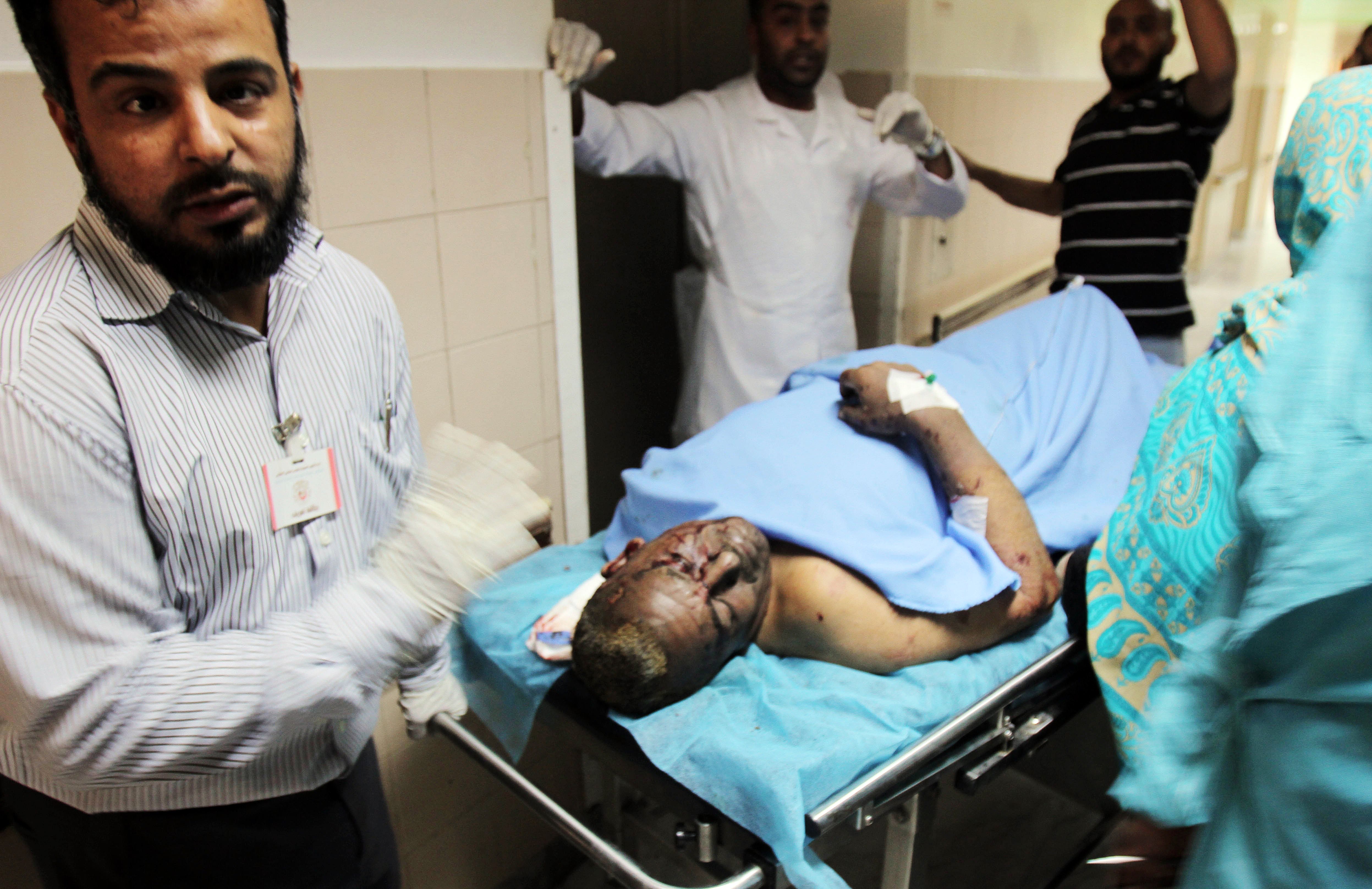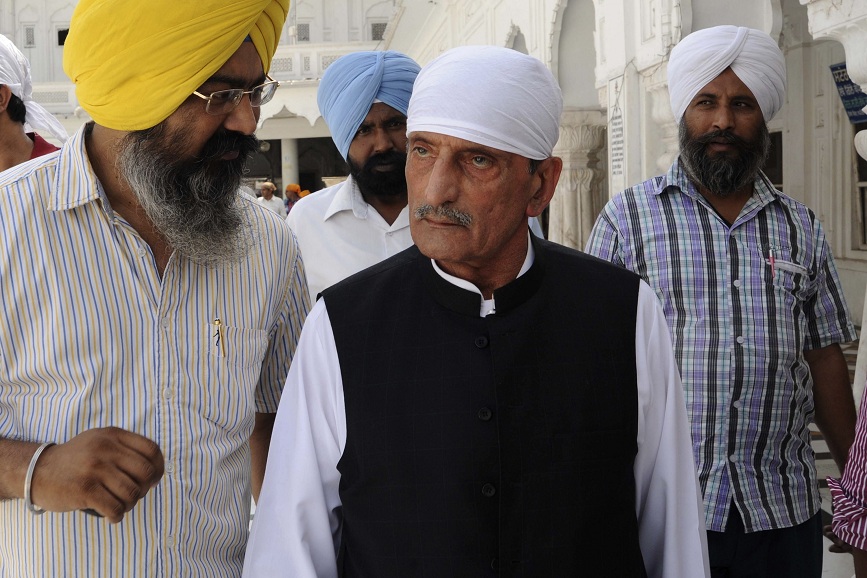By Hanan Solayman
CAIRO: The Muslim Brotherhood’s Shoura Council (legislative branch) is soon to vote on the Guidance Bureau’s initiative to establish the Brotherhood’s own political party named Freedom and Justice, amid fierce debate within the group.
The rifts looming over the formation of the political party are the strongest the Brotherhood has ever known in over 80 years and come after the January 25 Revolution.
“Confusion is expected in this crucial time,” said a Brotherhood member who preferred to remain anonymous.
Reform is widely called for among members of the Brotherhood but differently expressed, reflected in social media with Facebook groups whose titles range from “Revolution of Muslim Brotherhood Development,” to “We are Brotherhood’s Youth … One hand with our leadership.”
The revolution group initiated by Kamal Faragalla, a 37-year-old businessman, called for protests on March 17 to dismantle all the Muslim Brotherhood elected positions and schedule early elections.
“Mubarak’s regime didn’t allow us to nominate and vote freely in true democratic elections as Brotherhood members were usually subjected to harassment and arrest,” Faragalla told Daily News Egypt.
Faragalla’s vision is based on holding elections in the Brotherhood’s board which would register the Brotherhood as a political movement rather than a party. Faragalla set a timetable through April that organizes the elections process to be held on April 30.
“Judicial and political figures from the Brotherhood as well as outsiders should supervise the elections,” Faragalla said during a conference held last week by the Muslim Brotherhood’s youth to reevaluate the group’s role in Egypt’s transition to democracy and to discuss the establishment of the group’s political party.
However, Faragalla’s proclaimed revolution seems to have ended before it began as Muslim Brotherhood Chairman Mohamed Badei assigned his deputy, Khairat El-Shater, to develop the Brotherhood in a positive move seen to have temporarily contained the increasing demands for reform.
El-Shater took on the responsibility of developing the Brotherhood directly after his release from prison. “We met El-Shater a couple of weeks ago and agreed on organizing workshops to develop the Brotherhood. He only wants to keep the discussions internal and not witnessed by outsiders,” Faragalla said.
Political Islam
Faragalla’s call was considered the most extreme among reformers for using the term “revolution” which is not common among other Brotherhood members.
“What can be done with a ruling regime can’t be done in civil societies or NGOs. In these institutions, simply when someone disagrees, they just leave,” Islam Lotfi, lawyer and Brotherhood member, said.
Another call for reform was presented at the youth conference that stirred debate after the Guidance Bureau said they won’t endorse the conference asking MB members not to participate. Despite their initial approval of the agenda, the Brotherhood declined to participate in a conference that invited controversial Brotherhood figures like Abdel Moneim Aboul Fotouh and Mohamed Habib who are at odds with the leadership.
The decision only came two days after Aboul Fotouh attacked Badei during a lecture at Bibliotheca Alexandrina over the Brotherhood’s political party.
The Muslim Brotherhood youth at the conference complained of a paradox their leadership showed in inviting Coptic youth for dialogue, claiming they do not listen to the group’s own youth.
“There’s no logical explanation for the leadership’s position. It’s another indication that dialogue isn’t possible,” Faragalla noted. Media statements made by the Brotherhood’s spokesperson were negative according to the youth who were largely disappointed that the official MB website declined to cover their conference and neglected the 12 recommendations they outlined which mainly focused on the political future of the Brotherhood.
Mohamed Shams, an engineer, expressed during the conference his concern that the Brotherhood is endorsing one specific political party saying this would harm the Islamic ideology contributing to the political polarization as there are other soon-to-be-established Islamic parties like Al-Wasat and Al-Nahda.
Fears of division
Although Salah Fateen, a young Brotherhood member who works in communications, believes in the necessity of change, he didn’t attend the youth conference because he believes that internal reform should be put on hold until the parliamentary elections, so that the group isn’t preoccupied with internal matters.
“These are tough times; the society is afraid of the possibility of having Islamists in power so there should be more engagement between the Brotherhood and the community to refute the misconceptions promoted by the media over years and we need internal stability more than ever to do this,” Salah explained to DNE.
However, the conference organizers disagree. They believe that the organized media campaign targeting the Brotherhood aims at keeping them busy defending themselves rather than reforming and developing their movement. The need to change now more than ever, they said, aims to prevent divisions as many young members view Aboul Fotouh as an open-minded charismatic leader who now faces the possibility of being forced to leave the Brotherhood should he join a different political party.
Badei said in a statement issued March 15 that the Freedom and Justice Party would be the only political party representing the group.
“Members of the group aren’t allowed to form or join any other political party,” Badei had announced.
Sisters rise up
The Muslim Brotherhood’s young female members opt for more political participation and leadership positions as security concerns were washed away with Mubarak’s ouster. Recently, women joined geographical administrative offices in Sixth of October governorate and voted on equal footing with men as they managed to attend public meetings which they did not attend before fearing arrest.
Gehad Khaled presented a memo to her head demanding an appointment of a spokeswoman for the Brotherhood. She urged the group to allow women to hold important positions within the group.
Another Muslim Brotherhood member in her early 20s, who preferred to remain anonymous, however believes that change is occurring within the group on a very slow pace.
“There’s a restructuring process going on in the Brotherhood and there should be more engagement for women and youth but we don’t know what the official reform plan is,” she said.
Still, not all ideas are thoroughly discussed. “Out of the box ideas can be quickly skipped over as the mentality is somehow different between the youth and the leadership,” Salah admitted.
However, younger Brotherhood members said they will not leave the group no matter what happens and will wait to see if their calls for reform are heard.


